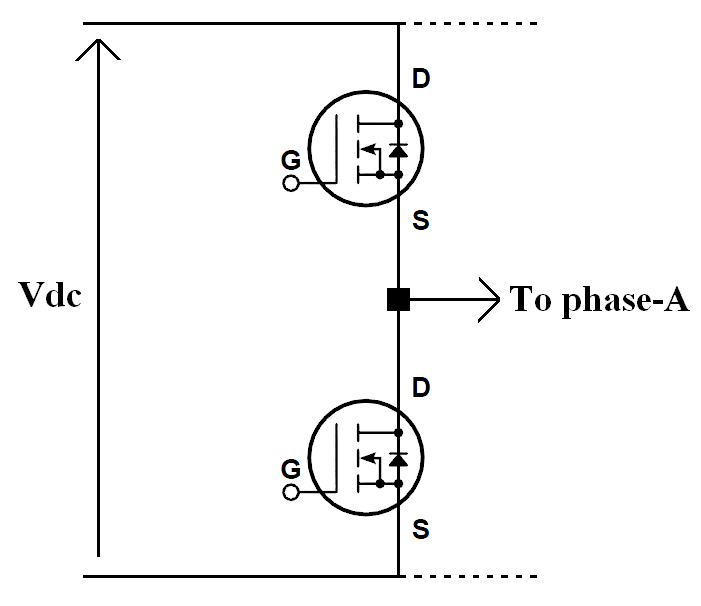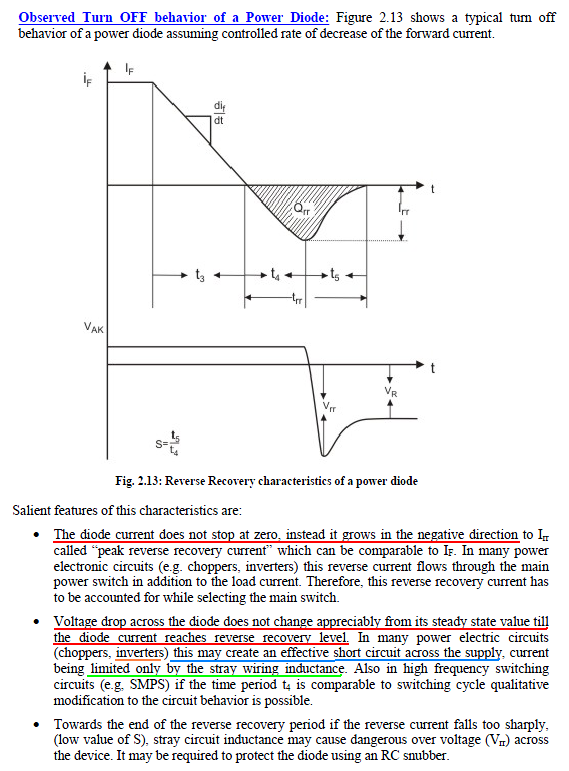powersys
Advanced Member level 1

Can the MOSFET intrinsic body diode cause short-circuit in an 3-phase inverter?
Found the following article:
Why MOSFETs fail in Solid State TC duty
https://www.richieburnett.co.uk/mosfail.html
The following comments were copied from the article:
Can the slow reverse recovery body diode of MOSFET cause "short-circuit" in a 3-phase inverter shown below (only one phase leg is shown)?

Found the following article:
Why MOSFETs fail in Solid State TC duty
https://www.richieburnett.co.uk/mosfail.html
The following comments were copied from the article:
Shoot-through, (cross conduction.)
If the control signals to two opposing MOSFETs overlap, then a situation can occur where both MOSFETs are switched on together. This effectively short-circuits the supply and is known as a shoot-through condition. If this occurs, the supply decoupling capacitor is discharged rapidly through both devices every time a switching transition occurs! This results in very short but incredibly intense current pulses through both switching devices.
Slow reverse recovery of MOSFET body diode
...MOSFET body diodes generally have a long reverse recovery time compared to the performance of the MOSFET itself. If the body diode of one MOSFET is conducting when the opposing device is switched on, then a "short circuit" occurs similar to the shoot-through condition described above... This problem is usually eased by the addition of two diodes surrounding each MOSFET. Firstly, a Schottky diode is connected in series with the MOSFET source. The schottky diode prevents the MOSFET body diode from ever being forward biased by the free-wheeling current. Secondly, a high speed (fast recovery) diode is connected in parallel to the MOSFET/Schottky pair so that the freewheeling current bypasses the MOSFET and Schottky completely.
Can the slow reverse recovery body diode of MOSFET cause "short-circuit" in a 3-phase inverter shown below (only one phase leg is shown)?

Last edited:

